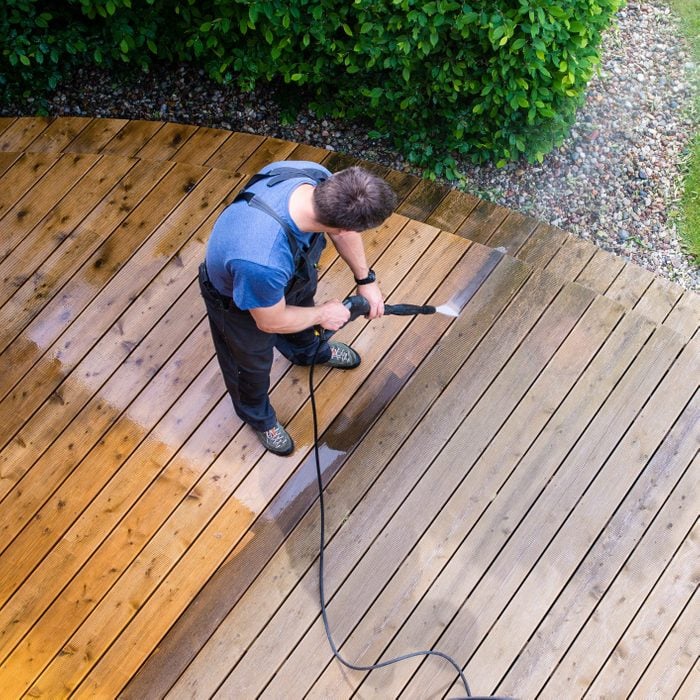Helpful Approaches for Dealing with Low Water Pressure in Your Home
Helpful Approaches for Dealing with Low Water Pressure in Your Home
Blog Article
What are your opinions on 4 Ways to Troubleshoot Low Water Pressure?

Low water pressure in your house can be an irritating problem, affecting every little thing from bathing to washing dishes. If you're experiencing weak water circulation, there are a number of possible causes and options to explore. In this guide, we'll go over typical reasons for low water pressure and functional actions to resolve the problem effectively.
Introduction to Low Water Pressure
Low water pressure happens when the circulation of water from your faucets, showers, and other fixtures is weak than common. This can make day-to-day tasks much more challenging and much less effective. Comprehending the sources of low tide pressure is essential to discovering the ideal option.
Usual Reasons For Low Water Pressure
Faulty Pressure Regulators
Stress regulators are responsible for preserving constant water pressure in your house. If they malfunction, it can lead to low tide stress or unequal circulation throughout the house.
Municipal Water System Issues
Often, the trouble lies outside your home. Municipal water system concerns, such as main line leaks or maintenance job, can temporarily lower water pressure in your area.
Pipe Obstructions
Gradually, pipelines can become clogged with natural resource, sediment, or debris, limiting the flow of water. This is a common concern in older homes with galvanized steel pipes.
Deterioration
Deterioration within pipelines can result in leaks and decreased water stress. Rust build-up can tighten water circulation, particularly in maturing plumbing systems.
Exactly How to Diagnose Low Water Stress
Examining Pipes
Evaluate visible pipelines for indicators of leakages, corrosion, or blockages. Pay attention to any type of uncommon sounds, such as knocking or rattling pipelines, which can suggest problems within the plumbing system.
Consulting with a Plumber
If you're not able to pinpoint the root cause of low tide stress, consider employing an expert plumber to carry out a comprehensive assessment. They can recognize underlying problems and suggest proper solutions.
Checking Taps and Fixtures
Begin by testing the water stress at different faucets and components throughout your home. If the issue is isolated to details areas, it may show local problems.
DIY Solutions to Repair Low Water Pressure
Flushing Hot Water Heater
Debris build-up in the water heater can limit circulation and lower efficiency. Flushing the tank occasionally aids remove debris and preserve optimum performance.
Examining Pressure Regulatory Authority
Make sure that the pressure regulatory authority is working appropriately. Changing or replacing the regulatory authority can assist recover correct water pressure throughout your home.
Cleansing Aerators and Showerheads
Mineral deposits can build up in aerators and showerheads, minimizing water circulation. Get rid of and clean up these parts consistently to boost water pressure.
Clearing Up Clogs in Water Lines
For minor blockages, try utilizing a plumbing serpent or chemical drain cleaner to clear obstructions in pipes. Be cautious when making use of chemicals and comply with safety and security guidelines.
When to Call an Expert Plumber
If do it yourself initiatives stop working to resolve the problem or if you think considerable plumbing problems, it's finest to look for aid from a certified plumber. They have the competence and devices to attend to complicated concerns securely and effectively.
Safety Nets to Maintain Water Pressure
Setting Up a Stress Booster
Think about mounting a pressure booster pump to boost water pressure in locations with regularly low flow. This can be specifically useful for multi-story homes or residential properties with high-demand fixtures.
Monitoring Water Use
Be mindful of water use behaviors and avoid overtaxing the plumbing system. Simple modifications, such as incredible showers and washing lots, can help preserve appropriate water stress.
Regular Upkeep
Schedule routine upkeep for your plumbing system to avoid issues such as rust, leakages, and obstructions. Dealing with minor troubles early can aid avoid more substantial repair services later.
Final thought
Handling low water stress can be irritating, but recognizing the underlying causes and carrying out proper remedies can recover optimum circulation throughout your home. Whether it's cleansing aerators, inspecting pipelines, or speaking with a plumber, taking positive actions can ensure a consistent supply of water for your day-to-day demands.
How to Fix Low Water Pressure In Your Home
Municipal Water Supply Issues
Scheduled maintenance, high demand, and water main breaks are all potential causes for low water pressure within a city or county’s water lines. While there’s not much you can do to personally fix a problem with your city or county’s water supply system, you can play a big role in documenting the issue and alerting those who can.
How to fix it:
Ask your neighbors if they are experiencing any issues with low water pressure. If multiple homes are affected, it’s likely related to the city’s water line. Contact the local Water Authority to see if there is any maintenance taking place that might be affecting your supply. Also let them know of your specific issues. If other homeowners report the same issues, they’ll know that there could be a larger issue to look into. Faulty Fixtures
A damaged or clogged shower head, faucet or appliance is the first thing we’d suggest checking, especially if low water pressure appears to be isolated to a specific area of your home.
How to fix it:
First, turn off the main water supply to your home. Check the affected appliances for build-up or debris. In the case of a faucet, you can simply unscrew the aerator at the tip of the faucet. Showerheads should be fully detached from the water pipe. While the appliances are detached, you may want to check the water supply to determine if the fixtures were in fact the issue. To clean, soak the showerhead or aerator in vinegar and brush off any visible debris. Reattach the fixtures and check the water pressure again. If it is still low, there is likely a deeper issue at hand, which can be determined by a professional plumber. Pipe Obstructions
Mineral deposits, rust or other debris within water pipes can lead to blockages or corrosion over time.
How to fix it:
When you think of a clog, you probably think of a drain clog. While there are many DIY solutions to clearing a drain, clogs in a water pipe will almost always require the help of a professional plumber. A plumber will be able to locate the affected pipe and clean out any debris or mineral deposit buildup. In severe cases, the pipe may need to be replaced. Your plumber might also recommend a water softening system to remove the minerals from your home’s water supply that can contribute to pipe blockages over time.
Plumbing Leak
Undetected water line leaks can divert water away from your residential pipes, reducing the water pressure in your fixtures.
How to fix it:
Check your water meter by turning off all water sources and monitoring the meter for any movement, which could be a clear indicator of a potential leak. Check all visible pipes for signs of leaking, including water stains, active dripping or damp spots around the pipe. Inspect fixtures, including faucets and showerheads, for any drips. Test the pressure but recording the pressure with the main water valve shut off. Leave off for a few hours and test again. A significant drop in pressure is a clear sign of a leak. https://kiddcoplumbing.com/plumbing-blog/how-to-fix-low-water-pressure/

I stumbled upon that page about 10 Reasons for Low Water Pressure in Your House when looking around the search engines. Sharing is nice. You just don't know, you may just be doing someone a favor. Thank you so much for going through it.
Quote & Schedule Report this page